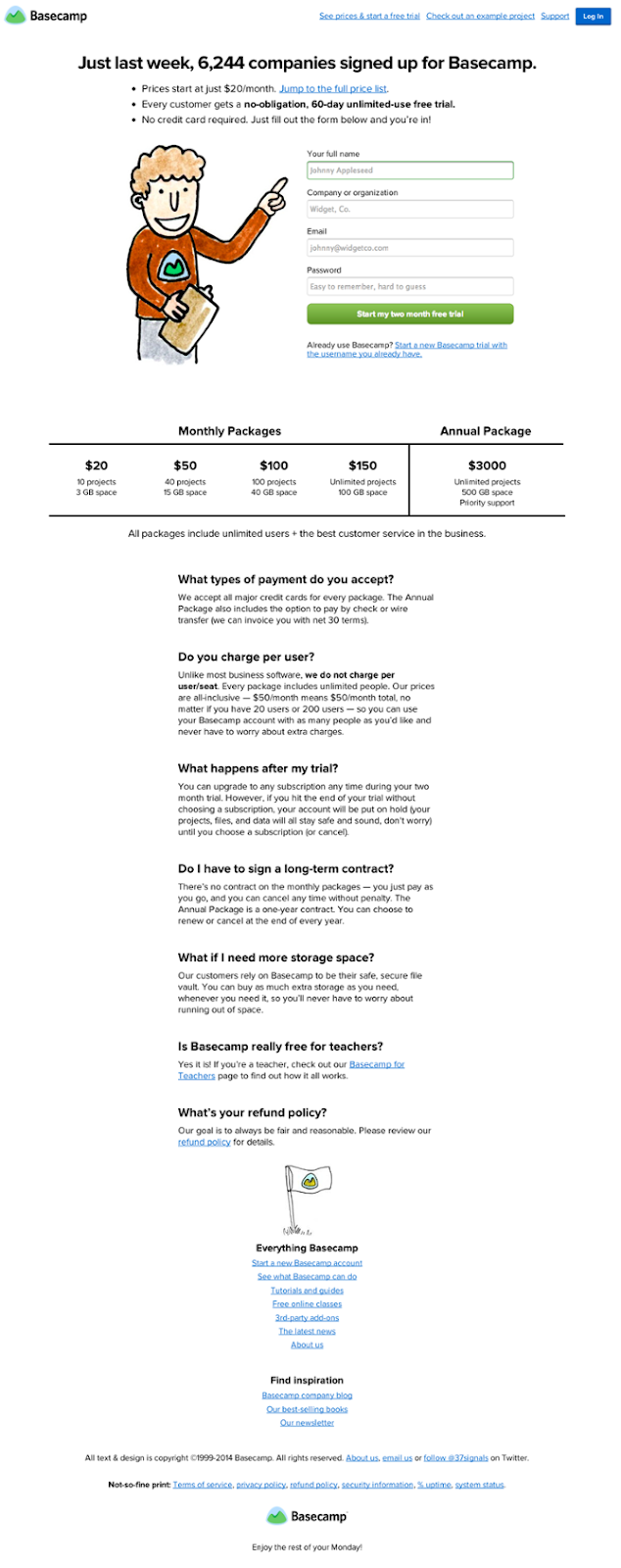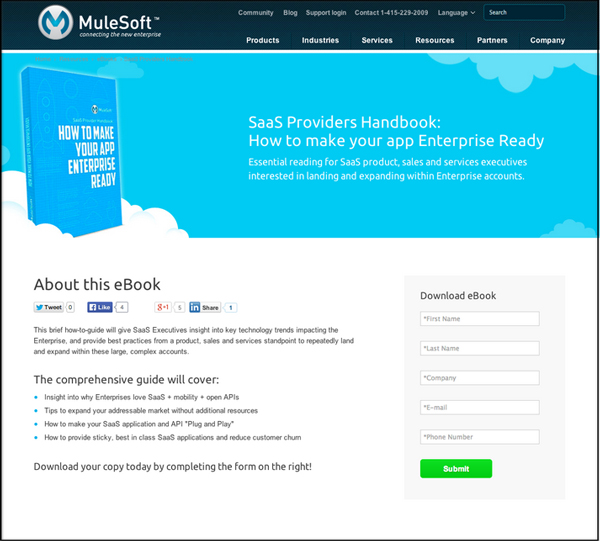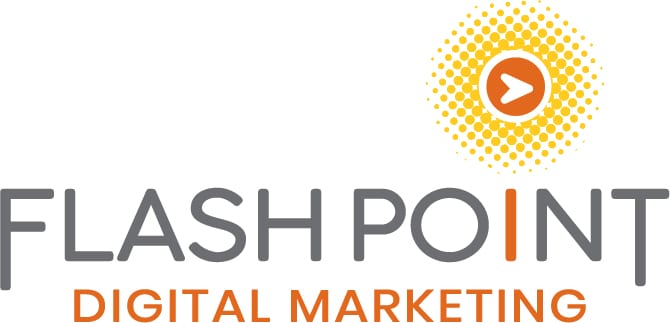SEO Guides, Tips & More!
Learn from Our Experience
Landing Pages for PPC
When it comes to pay-per-click advertising (PPC), most businesses and websites opt to send traffic to their homepages. This impulse is natural. If you are paying for a sponsored ad slot on Google, you want to get as much return on that investment as possible. What better way to maximize the ROI of a PPC campaign than to send visitors to the page on your website that has the broadest appeal and function? In most cases, that page is the homepage, hence the targeting of homepages as PPC landing pages.
The logic of having your homepage serve as a PPC landing page is that it represents your business or brand as a whole. Interested parties who click on your paid Google ad will be able to learn more about you from your homepage and then find their way to other more niche-driven pages on your website. The goal is to acquaint potential customers with your brand, with the homepage serving as the natural “starting line” to their journey through your website.
This line of thinking, while easy to justify, is flawed.
Why Your Homepage Is Not Your Ideal PPC Landing Page
In most cases, your homepage is not the best place to send people who click on your Google ad. In an organic search, your number one goal might be to get people on your site so they can engage with your brand. Ranking on any Google search happens organically, so any outcome where you get clicks is a small victory.
PPC is different. In a PPC situation, you are paying for every click, which means you want every click to pay off. Getting people to your site isn’t enough. The stakes with PPC are higher, which means you need to chase conversion. Having your homepage serve as your PPC landing page is not ideal because it asks your prospective customers to do some or most of the legwork.
Think of it this way: in most cases, PPC ads are advertising specific services, products, promotions, deals, contests, or the like. You are promoting something specific, to people on Google (or Bing) who are searching for something specific. If those people click on your ad, it’s because they saw something in the headline or description that caught their interest. However, if your link merely directs to the homepage of your website, the people clicking that link might feel confused, frustrated, or even cheated. They clicked on your link because it seemed to offer precisely what they were looking for with their search. When they get to your homepage, they are likely to be disappointed if they don’t immediately see something relevant to the topic or product or promotion advertised in the link. They’ll feel a bit like you offered them a shortcut through an obstacle course, only to drop them right at the beginning.
In these situations, linking your PPC ad to your homepage doesn’t offer a good user experience. It isn’t intuitive and can even feel a bit like false advertising. Unsurprisingly, PPC campaigns that direct users to a website homepage often end up with high bounce rates and low conversion rates. You are paying to get people to your website only to lose them seconds later when they can’t find what they want.
Being More Strategic with Your PPC Landing Pages
The big problem with using homepages as landing pages for PPC campaigns isn’t that they offer no relevant information. If someone clicks on your ad in a Google search, your homepage is likely relevant to that search in some way. The problem is that homepages offer too much information. They have too many words, too many images, and several links off to separate pages. They are, in a word, complex.
The best PPC landing pages are the opposite of complex. They are streamlined, simple, and intuitive. They have one topic, one call to action, one next step for the visitor to take. They are targeted, extremely relevant, and designed specifically to provide the information that your visitor was seeking when they clicked your link in Google. The relevance, simple structure, and clear call to action of these landing pages help minimize bounce rates while maximizing conversions.
Types of Landing Pages
According to yokelocal there are two types of landing pages that are typically used including lead capture or click through. We have seen and used variations on both used for PPC efforts.
- Lead Capture – This landing page type is very popular and designed to capture information about the user. Often times, this includes a name, email address and other information such as phone number. The information is given in exchange for access to some sort of thought leadership such as an e-book, whitepaper or other information. This is an approach commonly used on hubspot.com.
- Click Through – This landing page type provides a piece of user information about a product or service and how it will benefit them. It acts to convince them to make a purchase. These types of landing pages exist to propel the prospect to a sale.
(Landing page types below)

Landing Page Examples
The first from basecamp does a good job of articulating value, pricing and getting the user to convert.

This one from Mulesoft is an example of a lead capture page and does a good job getting the visitor “locked and loaded” to download the e-book.

Landing Page Benefit – Google Adwords
In the case of Google AdWords, the platform will even reward you for having this kind of targeted landing page. Google tracks everything with your PPC campaigns—including bounce rates. When visitors bounce after clicking your ad, it hurts your Ad Rank and your Search Impression Share. These factors, in turn, reduce the number of times your ad will even appear. You will then need to pay more per click to get your ad served up more often. Relevant, targeted landing pages are more relevant to searchers, which means they will convert more often. By converting more often, your pages will get better Ad Ranks and Search Impression Shares. More highly-rated pages are served up by AdWords more often and keep your cost-per-click low. Finally, a frequently-served ad is going to get more clicks and drive more conversions, keeping the cycle going and maximizing your PPC campaign ROI.
Bottom line, if you are going to invest in a PPC campaign, don’t do it halfway. Linking to your homepage might be the easiest thing—especially if you don’t have a landing page ready to go for the service or product you are trying to promote. However, building a simple and relevant landing page is a small investment of money and time that will ultimately pay huge dividends for the performance of your PPC campaign. If you are going to bother with paid search advertising at all, don’t skip this vital step.
What landing page best practices do you have to share? Let us know in the comments below.

